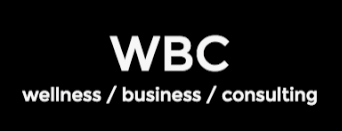Learn how to actually disconnect if you want to come back energized and ready for new challenges.
As an entrepreneur, you've probably had to shelve your vacation plans on several occasions, when faced with a business emergency or if you simply didn't have anyone to leave in charge and trust to run things smoothly in your absence. The few times you did manage to go on vacation, you found you were unable to completely disconnect, constantly worrying about your business and always checking your phone and email. Under these conditions, time off from work can end up feeling even more stressful instead of allowing you the opportunity to relax and recharge.
These six entrepreneurs explain why leaving work at work is crucial for your health and that of your business, and offer their best tips on how even the busiest entrepreneur can make the most of their vacation.
Disconnect for real.
Truly unplugging has become increasingly difficult when you have instant internet access almost anywhere in the world. Going on vacation in an area without coverage may be the only way to truly disconnect.
"I recently took a five-day trip to an area with no cell service and no Wi-Fi, and it was a more productive time to relax than longer trips where I had my cell by my side," says Rachel Beider, founder of Massage Williamsburg, Massage Greenpoint and Massage Outpost. "Taking a few days to seriously unplug adds so much value to a vacation."
Set a rule to not create more work.
"I love the idea of disconnecting entirely, but I can't," says Passport Co-founder and COO Aaron Schwartz. "So, when I take a vacation, I set a very specific rule and ask my team to hold me to it."
More specifically, Schwartz stays away from creating any new projects while away. "I am allowed to reply to emails and Slack in order to 'unblock' projects. But I'm not allowed to create work for myself or anyone. The team only brings critical work to my attention, and I feel energized because I'm only doing priority work," he explains.
Take more frequent, shorter vacations.
Many entrepreneurs find it difficult to go on vacation longer than a couple of days at a time, so "taking more two- to three-night getaways can be more productive and beneficial than taking one or two extended vacations," believes Shawn Schulze, president of HomeArea.com.
"It's enough time to get away and recharge, but also not so long that you feel overwhelmed when getting back into the swing of things," he says.
Utilize travel time for work.
Another way of making the most of your vacation, but not feeling completely cut off from work, is to use any periods of inactivity to get things done.
"I love to use airplane or other travel time to get work done," says Network Under 40 Founder Darrah Brustein "It frees me up to feel less anxious about not working during my vacation, and I often get into a flow because no one is trying to call or speak to me."
Be in the moment.
Just going away on vacation is not enough if you're not able to let go of your worries and enjoy the moment, according to Zev Herman, sales manager of Superior Lighting. "I find the best way to relax is to do something immersive that forces you to be in the moment. Snorkeling and swimming are great. Being with your family is obviously the most important thing."
Chances are that if you actually stop and take a breath, you will get more creative, interesting ideas than when you're overwhelmed with work in a stuffy office. "If you carry a notebook, you can grab an idea and feel confident you can return to it later," Herman adds.
Make it memorable.
"As an entrepreneur, time away from the office is a precious, way-too-limited resource. Make your vacations count by doing something you're going to look back on fondly," says Brittany Hodak, co-founder of The Superfan Company.
According to Hodak, spending a memorable vacation in a place you enjoy will not only help you relax but also serve as a goal for renewed productivity and hard work when you come back. "When you're back in the grind, you can break out pictures and say, 'That was incredible. I've got to keep plugging away at X so I can go back there soon.' It becomes a reward in the moment and a goal for the future."








